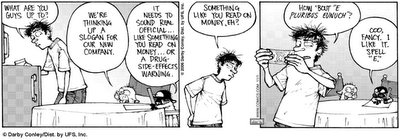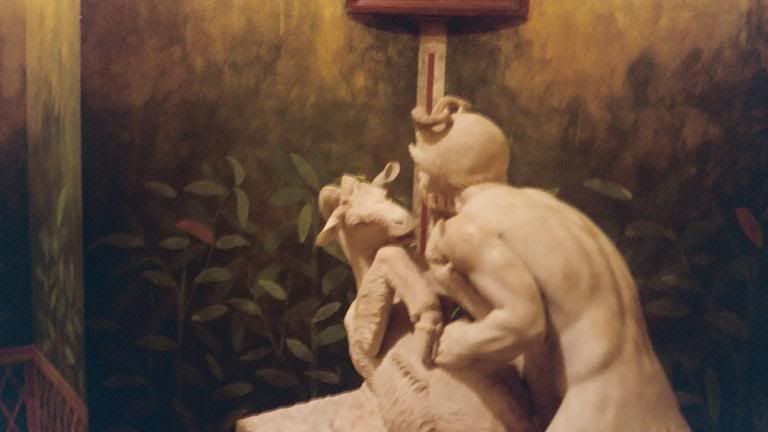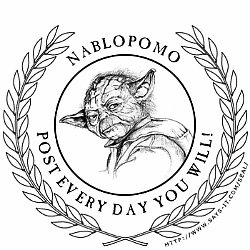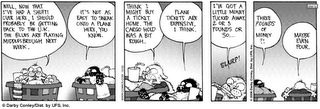Well, I finally got to watch the episodes today (although I probably could have picked a better time for my screening!), and overall, I thought it was pretty good. It's not HBO's
Rome's entertainment level, but that wasn't its purpose. On a strictly general educational level, I think the show works pretty well--and, in fact, better than I was expecting (and my expectations had gone up once I realized Mary Beard was consulting, so that is actually saying something).
The DVDs start with the Caesar episode, which is, quite frankly, rather disconcerting if you're familiar with HBO's
Rome. As I recall, they specifically did not start with this when they aired it, which was certainly wise of them. To heighten the confusion, they had Karl Johnson (HBO's Cato) playing Marcellus and actually arguing with their Cato (Crispin Redman). I personally prefer Karl Johnson's Cato, but at least they had a better black toga for Cato in this BBC version. They also had an actor who looked so much like HBO's Pompey (Kenneth Cranham) that the group of us was actually convinced they were one and the same, but was really somebody else entirely it seems--one John Shrapnel.
One thing that I especially noticed in this episode but was true throughout all of them, though, was that all subtlety of action was gone. It really had to be, since they were condensing years of action into one hour. It was particularly striking in the Caesar episode, though, because HBO's
Rome had had 12 episodes to cover what BBC covered in one hour. Thus Ciaran Hinds (HBO) could really milk it and be the kind of Caesar you'd actually follow while Sean Pertwee (BBC) just seemed like a mean tyrant. Besides which, it's just generally difficult to match Ciaran Hinds' Caesar.
The next episode was Nero, whom they portrayed as initially quite sympathetic but then later a raving lunatic--and I do mean he had seriously insane expressions on his face quite frequently. Poppaea was actually quite lovely as well. The biggest problem with this episode is that they were filming the gladiator scenes in what looked so obviously like the Colosseum--which was supposedly yet to be built! They thankfully did not call it the Colosseum, but for anyone who's actually familiar with the Colosseum, it was quite confusing!
Then was the Jewish War and the Flavians (curiously missing Domitian altogether, but the episode was really about the Jewish war more than the emperors themselves). It was either this episode or the one before it where we had a brief flash of the senate that accidentally included Karl Johnson (who earlier played Marcellus). I'm sure they meant it to be a generic senate shot, though. I can't recall much on this one, actually, except a few questions in the group on Roman warfare.
The fourth episode on the DVD was the Gracchus episode, which had some interesting moments. As Mary Beard pointed out, it has the wonderful corpse of Tiberius' father (actually, they do a nicer painted-up corpse of Poppaea in the Nero episode too). It also has rich moments between Tiberius and his mother, Cornelia. There is, of course, the perpetual problem of Gaius being left out. I think a nod could have been made to him, but it might have been equally awkward to then have to leave him when the hour was up.
The fifth episode was Constantine. Nothing severely anachronistic that I can remember (I always fear there will be crosses or something), but they certainly did not miss the opportunity to play up the Christian aspects. I thought the little toy models for the battle plans were funny, but maybe I was just loopy from my fifth hour of staring at a screen.
The final episode was "The Fall of Rome" with the sack of Rome. I'd almost argue from the way they portrayed each of these episodes, any of them could be argued as "the beginning of the fall of Rome." I actually had a hard time seeing where they were trying to show the rise of the Roman empire. I assume they meant starting with Gracchus and continuing with Caesar, but both of these were depicted as extremely destructive episodes in Roman history to be quite honest.
My two general "complaints" for the series:
1) stirrups?!
2) Eeeevery single episode seemed to need to include a woman looking extremely distraught and furious and thus egging men into action by calling for someone's destruction with mad fury in their eyes. Many of these made sense, but the strangest one was the random woman who collapsed as the Goths were marching off somewhere just so Alaric could come up to her so that she could tell him with mad fury in her eyes to destroy Rome. There is also, inevitably, some male figure purposely misguiding the emperor of each episode for his own evil (or just stupid) purposes. Again, many of these had reason, but it became a bit formulaic.
Anyway, overall, the series dealt much more with real history than I've come to expect from television shows, even if some of it was questionable. At the very least, I could see a person walking away wanting to know and learn more, though, and trying to grapple with the questions presented. In that sense, I do believe this series succeeds. Plus, it was pretty good entertainment, even if there were a few more battle scenes than I can usually stand.







